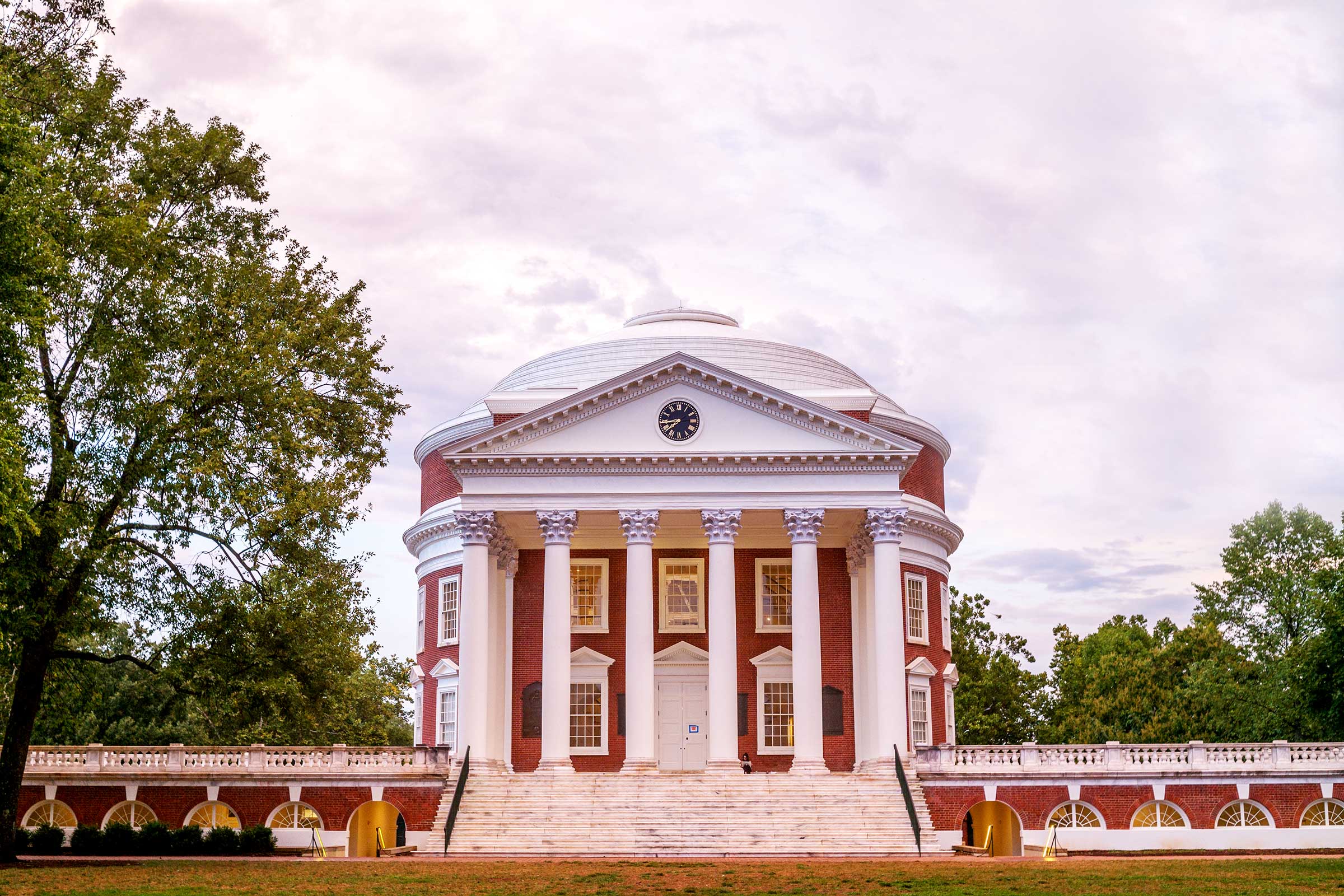The University of Virginia Board of Visitors today approved tuition rates for the 2017-18 academic year, adopting a 2.2 percent increase in tuition for in-state undergraduate students and 3.5 percent increase for out-of-state undergraduate students. The board also approved a 3 percent increase for in-state and out-of-state undergraduate students at the University of Virginia’s College at Wise.
The modest tuition increase comes at a time when the University is absorbing a reduction in state funds of more than $7 million due to a permanent general fund reduction – more than 5 percent of UVA’s educational and general fund appropriation.
If the University were to meet its projected 2017-18 equivalent operating challenges – which include state-authorized salary increases and compliance measures – in-state undergraduate tuition would have to increase by 7.7 percent. However, University officials instead proposed a lower tuition increase in keeping with its commitment to affordability, and will continue to seek additional efficiency opportunities in operating budgets across Grounds.

On an inflation-adjusted, per-student basis, the cumulative UVA undergraduate tuition increase over the last 25 years is less than the reduction in general funds from the commonwealth that UVA has absorbed.
“As UVA approaches its bicentennial, the commitments we make now will define the University’s character in its third century,” University President Teresa A. Sullivan said. “This applies both to the commitment the commonwealth makes to us, and to the value we offer to our students.”
“In the University’s multi-year financial model approved in March 2015, the Board of Visitors pledged to keep tuition down,” UVA Executive Vice President and Chief Operating Officer Patrick D. Hogan said. “Keeping in line with this commitment made two years ago, the 2.2 percent in-state undergraduate increase is lower than estimated in the forecast plan.
“Today’s action demonstrates the University’s commitment to academic excellence and builds on our affordability efforts through AccessUVA, with continued loan caps, the guaranteed tuition plan, the recently established Bicentennial Scholars Fund and the Cornerstone Grants,” he added.
The University considers tuition as its last-resort funding source. University officials engaged with the UVA Student Tuition Advisory committee to review various tuition scenarios.
During this year’s legislative session, the Virginia General Assembly reduced the base budget for UVA-Wise for fiscal year 2018 by $482,000. However, the legislature ultimately provided $425,000 for operations and maintenance for the new library, bringing the total reduction that UVA-Wise will have to absorb in the fiscal year 2018 base budget over fiscal year 2017 to about $57,000.
“We are grateful to the Virginia legislature for limiting the budget reductions for UVA-Wise,” Sullivan said. “This decision will help maintain affordability and manage the debt burden to our students in Southwest Virginia.”
The Board of Visitors in January authorized the “Cornerstone Grant” program to provide significant cost-of-attendance relief to qualifying middle-income, full-time Virginia undergraduate students. Initial funding for the Cornerstone Grant is estimated to be $15 million over the next three years and is provided by the University’s Strategic Investment Fund. In December, the University also launched the Bicentennial Scholars Fund, a permanent endowment to fund student scholarships in an amount that could total $300 million through philanthropic support and the UVA Strategic Investment Fund.
UVA is one of only two public institutions in the United States that makes “need blind” offers of admission while still meeting 100 percent of need for all in-state and out-of-state students. Through its robust financial aid program, AccessUVA, the University limits student indebtedness by capping loans ($4,000 for low-income Virginians, $18,000 for all other Virginians, and $28,000 for non-Virginians). Sixty-seven percent of UVA undergraduate students graduate with no debt; the 33 percent of students who graduate with debt do so with an average of $20,500, which is $5,000 below the national average.
UVA regularly earns recognition for its world-class academic opportunities, commitment to affordability and for its value among the nation’s best universities. U.S. News ranks UVA as the No. 2 public institution, No. 24 national institution (public and private) and No. 25 most innovative school in the country. Kiplinger’s ranks UVA as the No. 2 Best Value among public institutions. Money Magazine ranks UVA as the No. 3 Best Value College. The Princeton Review ranks UVA as No. 7 in the “Top 200 Colleges That Pay You Back.” UVA has the lowest average student debt among Virginia colleges and universities, according to Money Magazine’s “Best Colleges Rankings 2016.”
Media Contact
Article Information
April 20, 2017
/content/uva-board-visitors-approves-tuition-rates-2017-18

